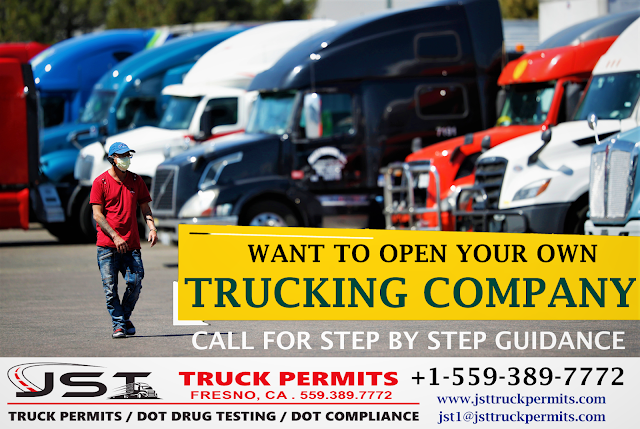Start Your Own Trucking Business
Have a CDL:
Get your CDL (Commercial Driving License) first and go
through some training programs which will be run by trucking companies or some
will pay for CDL school.
Have a plan:
Having a business plan is very necessary as it shows
your expected revenue and expenses to be. The expenses need to include owner
salary too.
Choose the right kind of
company:
The business could either be:
·
Sole proprietor
·
Partnership
·
Corporation (C-Corp, S-Corp, etc)
·
Limited Liability Corporation (LLC)
To find out which one is best, you must meet the
accountant because each state has different pros and cons.
The startup expenses:
The licensing requirements, registration costs, and
the trailer are going to cost the money. Try to secure the line of credit as it
is important to save money for the first six months’ operations.
Business operations:
How to deal with parking and maintenance? Who will
take care of invoicing, payroll, IFTA, accounting? From where will you find
loads? Do you need to hire employees?
Compliance:
Before starting the company, your company must be in
compliance with safety rules:
Operating Authority-Carriers must have the authority
to haul freight across the state.
USDOT number - The carriers must have a USDOT number issued
by the DOT to monitor the safety information, and inspection.
HVUT (Heavy Vehicle Used Tax) - It is for the trucks
who weigh more than 55,000 pounds.
IRP - It is the registration fees based on the distance
traveled in each state or Canadian province.
IFTA - It is an agreement
among the lower 48 U.S. states and Canadian provinces to simplify fuel
reporting.
BOC-3 filing - The company need to have a process agent in
each state where there is the office or established contacts.
Insurance:
Primary liability-A person going to start trucking company
must have $750,000 as primary liability coverage, which will cover the injury
due to accident which will be due to your fault.
Physical Damage-It cover the truck damage where you are not
liable.
Non-Trucking Use-If accident happen when you are not hauling
a load for someone then it will protect your liability.
Have a truck or trailer:
Operating lease- Taxes,
maintenance and permits will be taken care by you and at the end of lease you
walk away.
Lease purchase Plan-Truckers having not enough money to opt
for down payment option. They may pay more in the long run on these plans,
versus traditional financing.



Comments
Post a Comment